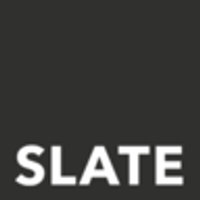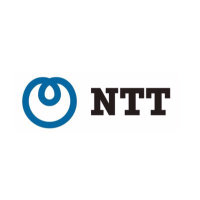
Slate Grocery REIT
TSX:SGR.UN


| US |

|
Johnson & Johnson
NYSE:JNJ
|
Pharmaceuticals
|
| US |

|
Berkshire Hathaway Inc
NYSE:BRK.A
|
Financial Services
|
| US |

|
Bank of America Corp
NYSE:BAC
|
Banking
|
| US |

|
Mastercard Inc
NYSE:MA
|
Technology
|
| US |

|
UnitedHealth Group Inc
NYSE:UNH
|
Health Care
|
| US |

|
Exxon Mobil Corp
NYSE:XOM
|
Energy
|
| US |

|
Pfizer Inc
NYSE:PFE
|
Pharmaceuticals
|
| US |

|
Palantir Technologies Inc
NYSE:PLTR
|
Technology
|
| US |

|
Nike Inc
NYSE:NKE
|
Textiles, Apparel & Luxury Goods
|
| US |

|
Visa Inc
NYSE:V
|
Technology
|
| CN |

|
Alibaba Group Holding Ltd
NYSE:BABA
|
Retail
|
| US |

|
JPMorgan Chase & Co
NYSE:JPM
|
Banking
|
| US |

|
Coca-Cola Co
NYSE:KO
|
Beverages
|
| US |

|
Walmart Inc
NYSE:WMT
|
Retail
|
| US |

|
Verizon Communications Inc
NYSE:VZ
|
Telecommunication
|
| US |

|
Chevron Corp
NYSE:CVX
|
Energy
|
Utilize notes to systematically review your investment decisions. By reflecting on past outcomes, you can discern effective strategies and identify those that underperformed. This continuous feedback loop enables you to adapt and refine your approach, optimizing for future success.
Each note serves as a learning point, offering insights into your decision-making processes. Over time, you'll accumulate a personalized database of knowledge, enhancing your ability to make informed decisions quickly and effectively.
With a comprehensive record of your investment history at your fingertips, you can compare current opportunities against past experiences. This not only bolsters your confidence but also ensures that each decision is grounded in a well-documented rationale.
Do you really want to delete this note?
This action cannot be undone.

| 52 Week Range |
12.74
15.3
|
| Price Target |
|
We'll email you a reminder when the closing price reaches CAD.
Choose the stock you wish to monitor with a price alert.

|
Johnson & Johnson
NYSE:JNJ
|
US |

|
Berkshire Hathaway Inc
NYSE:BRK.A
|
US |

|
Bank of America Corp
NYSE:BAC
|
US |

|
Mastercard Inc
NYSE:MA
|
US |

|
UnitedHealth Group Inc
NYSE:UNH
|
US |

|
Exxon Mobil Corp
NYSE:XOM
|
US |

|
Pfizer Inc
NYSE:PFE
|
US |

|
Palantir Technologies Inc
NYSE:PLTR
|
US |

|
Nike Inc
NYSE:NKE
|
US |

|
Visa Inc
NYSE:V
|
US |

|
Alibaba Group Holding Ltd
NYSE:BABA
|
CN |

|
JPMorgan Chase & Co
NYSE:JPM
|
US |

|
Coca-Cola Co
NYSE:KO
|
US |

|
Walmart Inc
NYSE:WMT
|
US |

|
Verizon Communications Inc
NYSE:VZ
|
US |

|
Chevron Corp
NYSE:CVX
|
US |
This alert will be permanently deleted.
Slate Grocery REIT
Slate Grocery REIT operates as a real estate investment trust, which engages in acquiring, owning, and leasing a portfolio of diversified revenue-producing commercial real estate properties. The company is headquartered in Toronto, Ontario. The company went IPO on 2014-04-22. The REIT focuses on acquiring, owning, and leasing a portfolio of grocery-anchored real estate properties (the properties) in the United States of America (the U.S.). The REIT owns and operates approximately U.S. $2.4 billion of real estate infrastructure across U.S. metro markets. Its properties include Centerplace of Greeley, River Run, Sheridan Square, Flamingo Falls, Northlake Commons, Countryside Shoppes, Creekwood Crossing, Skyview Plaza, Riverstone Plaza, Fayetteville Pavilion, Clayton Corners, Apple Blossom Corners, Hillard Rome Commons and Riverdale Shops. The REIT's investment manager is Slate Asset Management (Canada) L.P.

Slate Grocery REIT operates as a real estate investment trust, which engages in acquiring, owning, and leasing a portfolio of diversified revenue-producing commercial real estate properties. The company is headquartered in Toronto, Ontario. The company went IPO on 2014-04-22. The REIT focuses on acquiring, owning, and leasing a portfolio of grocery-anchored real estate properties (the properties) in the United States of America (the U.S.). The REIT owns and operates approximately U.S. $2.4 billion of real estate infrastructure across U.S. metro markets. Its properties include Centerplace of Greeley, River Run, Sheridan Square, Flamingo Falls, Northlake Commons, Countryside Shoppes, Creekwood Crossing, Skyview Plaza, Riverstone Plaza, Fayetteville Pavilion, Clayton Corners, Apple Blossom Corners, Hillard Rome Commons and Riverdale Shops. The REIT's investment manager is Slate Asset Management (Canada) L.P.
Leasing Momentum: Slate Grocery REIT completed over 417,000 square feet of leasing in Q3, with renewal deals at 15% above expiring rents and new leases at 35% above average in-place rent.
Occupancy: Portfolio occupancy remained stable at 94%, supported by continued leasing activity across junior anchor and small shop spaces.
Organic Growth: Same-property net operating income increased by $4.3 million or 2.7% on a trailing 12-month basis; management expects 3% to 4% organic growth to continue into 2026.
Rent Growth Opportunity: In-place rents of $12.82 per square foot remain well below the $24.09 market average, providing further runway for increases.
Debt & Leverage: Over 90% of the REIT's debt is fixed at a 5% average interest rate, with about 200 basis points of positive leverage between cap rate and financing costs.
Market Conditions: Management highlighted resilient demand for grocery-anchored retail, tight new supply, and a strong transaction pipeline, expecting continued stability and value growth.



































